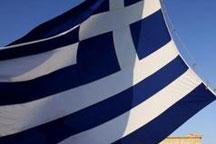Greek bailout talks resume

 0 Comment(s)
0 Comment(s) Print
Print E-mail CNTV, February 25, 2014
E-mail CNTV, February 25, 2014
Representatives of Greece's international creditors have resumed talks with government ministers in Athens, over conditions for the release of the country's next bailout instalment, which is due in the spring. The government says both sides are very close to an agreement, but there's scepticism from the public over what spending cutbacks the Greek government will be forced to make this time.
They're not the most welcome visitors but the troika's return to Athens does offer hope of sorts.
It means six months of wrangling over the latest rescue loan may be at an end.
Greece needs to repay bonds worth 9.3 billion euros before May.
Disagreements with the EU, ECB and IMF over how to do that have caused the delay.
But William de Vijlder from BNP Paribas says things have changed in Greece in that time, among them growing exports.
"There is an expectation that GDP will be positive this year, they have moved back to a primary surplus, deposit rates have increased, interest rates that banks need to pay have some down significantly - they were 5% last year, they are 3% at this stage so that is also a good sign," William de Vijlde, CIO of BNP Paribas, said.
Many Greeks don't see the positives.
Huge structural challenges remain, unemployment is high and austerity fatigue is acute.
"The government has placed us in the 'labour reserve' scheme which expires in two months. We want them to look at out situation with sensitivity and support the weaker social classes," a laid off government worker said.
The other hope is a new bailout deal.
The government wants to negotiate one after elections in May.
"If it is successful in negotiating it will pave the way for coming back to the capital markets and it would also give people a more comfortable feeling about the nature of the progress that we are seeing now," Vijlde said.
This hurdle needs clearing first though.
The troika may not be asking for any new austerity measures but Greece must spell out what reforms it will implement before it gets the cash.






Go to Forum >>0 Comment(s)